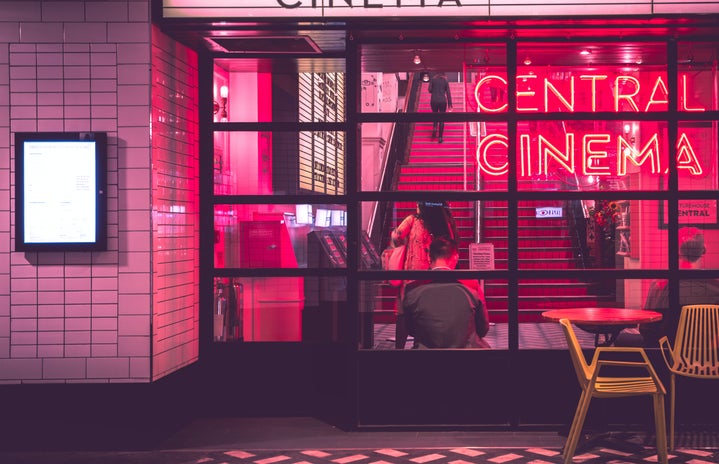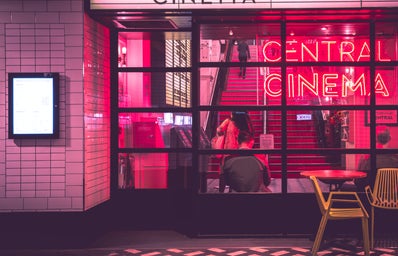As I have done before, I want to take the time to delve into the female representation in the media I have consumed lately. My selection ranges from women who hold the power in society and full personal agency, to women who fall flat on screen without dimension to their character. It’s fascinating to me how female representation has evolved on screen, especially in the recent decades. I will admit that every woman I have listed below are ambitious, devoted, and powerful representations.
Strong Female Representation
- Lady Bird (2017)
Lady Bird is probably one of my favorite films to watch. It’s simple yet very effective. Because that’s the whole point — to be realistic. Christine McPherson (Saoirse Ronan) is an angsty, rebellious, lost, and confused teenager in high school with a desperate need to find her own identity and to figure out who she is by going by the name “Lady Bird”. Lady Bird does not know the best way to tell her story while she is in high school, and even at the end of the movie when she is a freshman in college – she still doesn’t know. But, Lady Bird does know one thing. She is not going to let anyone else define who she is or who she is supposed to be. There were points throughout the movie where it was difficult to be on her side, but Lady Bird is one of the most accurate portrayals of teenage girls (like myself) in cinema. Lady Bird refused to be flat and shoved in a box in fear of the single story.
2. Hustlers (2019)
Every single woman in this film is phenomenal. They are powerful, independent, and confident women with tremendous agency. What I find the most empowering from this movie was the fact that each and every single woman is confident and dominating inside of her own skin. They exhibit their bodies in a way that doesn’t suggest they only exist for men, but instead suggests that the women are in full control. They understand men and how they think, and they use it to their financial advantage. The women understand that men prefer less intelligent women who serve them sexually, so they use it. Ramona (Jennifer Lopez) and Destiny (Constance Wu) in particular understand the position they are in. While they commit questionable acts that they believe are justified, their power and feminine dominance is undeniable. As sad as it is, this is one of the fewer movies in Hollywood that features a female protagonist, much less multiple. As of 2023, only about 28% of protagonists are women. That alone is challenged by Hustlers.
- One Day (2024)
Emma Morley (Ambika Mod) is not perfect by any means. She had an affair with a married man, she is very socially awkward, she can be very brash and rude, and she believes that she is above many things. But she is real. She is a realistic woman because women are complex and not always perfect. Sometimes, I truly did not like Emma in how she interacted with Dexter or the other characters in “One Day” — but other times I really felt for her. All Emma wanted was to be accepted, valued, loved, and cared for. She never really found out how to express that to anyone in her life, up until the end of the film. While Emma Morley was far from perfect, she was beautifully nuanced. And flawlessly represented.
Poor Female Representation
- Gentlemen Prefer Blondes (1953)
Marilyn Monroe is one of America’s icons of fame, beauty, and luxury. So for that, she is a strong woman within the film and entertainment industry. However, her character in “Gentlemen Prefer Blondes”, is every stereotype that women have fought so hard to destroy. Lorelei plays as a ditzy, dumb blonde, over-sexualized trophy for men to ogle at. Lorelei’s goal throughout the entirety of the movie is to successfully find and marry a rich man (or one with a rich father) so she can live as a pretty rich wife. Her agenda continues regardless of whether the men she is targeting have a wife and family or not. It may be due to no fault of her own — but Monroe’s character confirms almost every female stereotype under the male gaze in film.
- The Devil Wears Prada (2003)
I would just like to preface that I think this movie is nothing if not iconic. Meryl Streep, Anne Hathaway, and Emily Blunt are spectacular in this movie. It’s fashionable, glamorous, and entertaining. I would love the chance to be Andrea Sachs (Anne Hathway) for a day. However, as captivating this movie is — the women are not depicted in a flattering light. While they are alluring, beautiful, and powerful – they are also vindictive, inconsiderate, and calculated. Throughout the entirety of the movie, there are comments of how being a size 4 or a 6 was considered unattractive and unheard of at the magazine, Runway. In the scene prior to Emily Charlton (Emily Blunt) and Andrea Sachs (Anne Hathaway) entering the party at the Met, Blunt stated that she hadn’t eaten for two weeks before this event to look her best for the gala. I understand that this was the norm for women to be participating in and discussing in the early 2000s; I don’t think it translates as well in today’s society. The women are constantly fighting and competing with each other to get Miranda Priestly’s (Meryl Streep) attention and praise. They backstab and play games with each other to get ahead in the fashion magazine industry in ways that I believe are unnecessary and cruel.
- The House Bunny (2008)
“The House Bunny” stars big names like Anna Faris, Emma Stone, Colin Hanks, and Kat Dennings. The premise of the movie is that an ex-Playboy bunny, Shelley (Anna Faris), has been kicked out of the Playboy mansion and is suddenly without a place to live. She wanders around a college campus and attempts to be a sorority house mother. She is rejected from every sorority house she visits, except for one. The last house she visits is a sorority house of socially awkward and outcast girls. Faris immediately enters the sorority house and “transforms” the girls into someone they weren’t to attain the beauty standard and get boys. The sorority girls are trained to be hot and dumb when talking to guys in order to get a boyfriend. The House Bunny fell flat for me and promoted the message that smart girls who didn’t reach the beauty standard were unappealing and unattractive to everyone. That’s just simply not true.
With all of this being said, I still love these movies, sometimes even when the female representation isn’t stellar. I watch movies to enjoy them. But, I want women to be appreciated and portrayed as incredible people with nuance and character. I want women to be valued as they are. There is no need to change who we are to fit into standards. Even in my strong representation category – they are far from perfect. We don’t have to be perfect to be respected.
Check out part one: https://www.hercampus.com/school/cu-boulder/female-representation-in-film/


